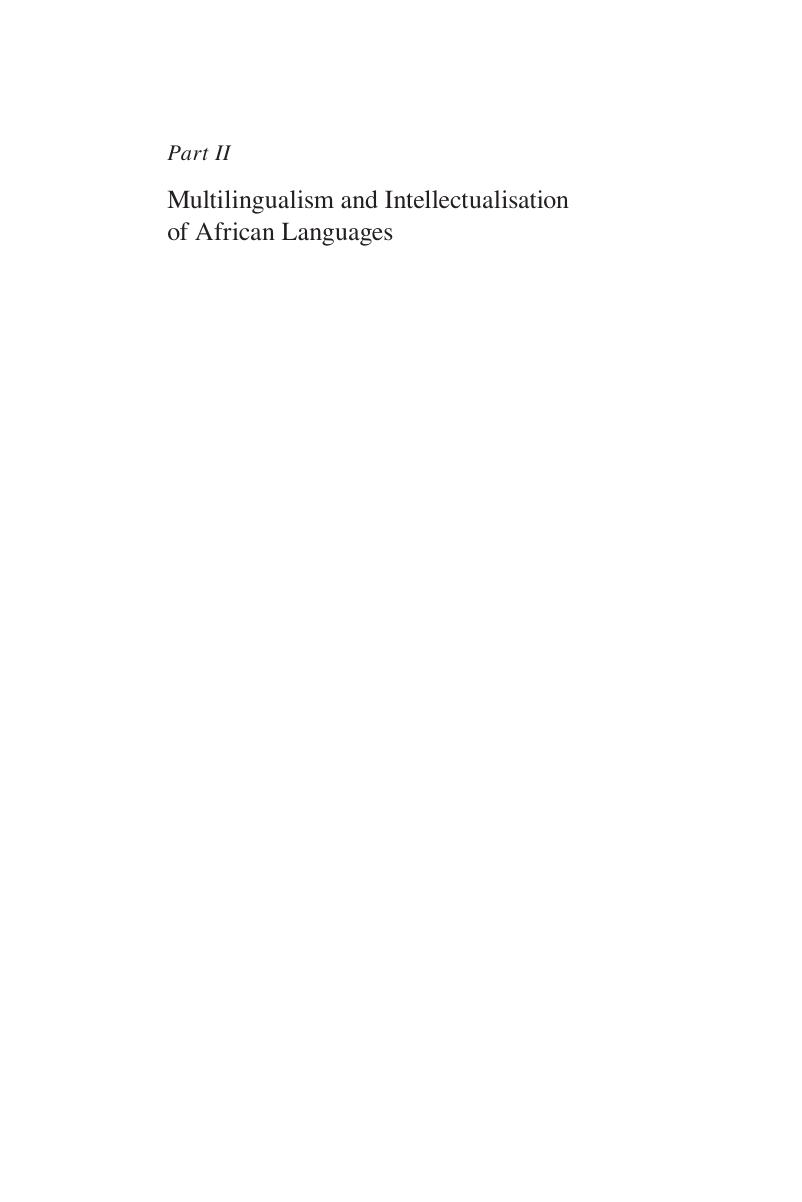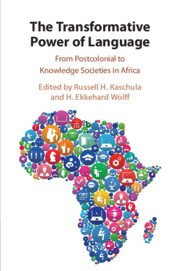Book contents
- The Transformative Power of Language
- The Transformative Power of Language
- Copyright page
- Contents
- Figures
- Tables
- Contributors
- Preface
- Abbreviations and Acronyms
- Introduction
- Part I Mental Decolonisation and Cultural Diversity
- Part II Multilingualism and Intellectualisation of African Languages
- Part III Digitalisation and Democratisation of Knowledge
- Part IV Interlingual and Intercultural Cross-Fertilisation
- Index
- References
Part II - Multilingualism and Intellectualisation of African Languages
Published online by Cambridge University Press: 18 September 2020
- The Transformative Power of Language
- The Transformative Power of Language
- Copyright page
- Contents
- Figures
- Tables
- Contributors
- Preface
- Abbreviations and Acronyms
- Introduction
- Part I Mental Decolonisation and Cultural Diversity
- Part II Multilingualism and Intellectualisation of African Languages
- Part III Digitalisation and Democratisation of Knowledge
- Part IV Interlingual and Intercultural Cross-Fertilisation
- Index
- References
Summary

- Type
- Chapter
- Information
- The Transformative Power of LanguageFrom Postcolonial to Knowledge Societies in Africa, pp. 83 - 206Publisher: Cambridge University PressPrint publication year: 2020

